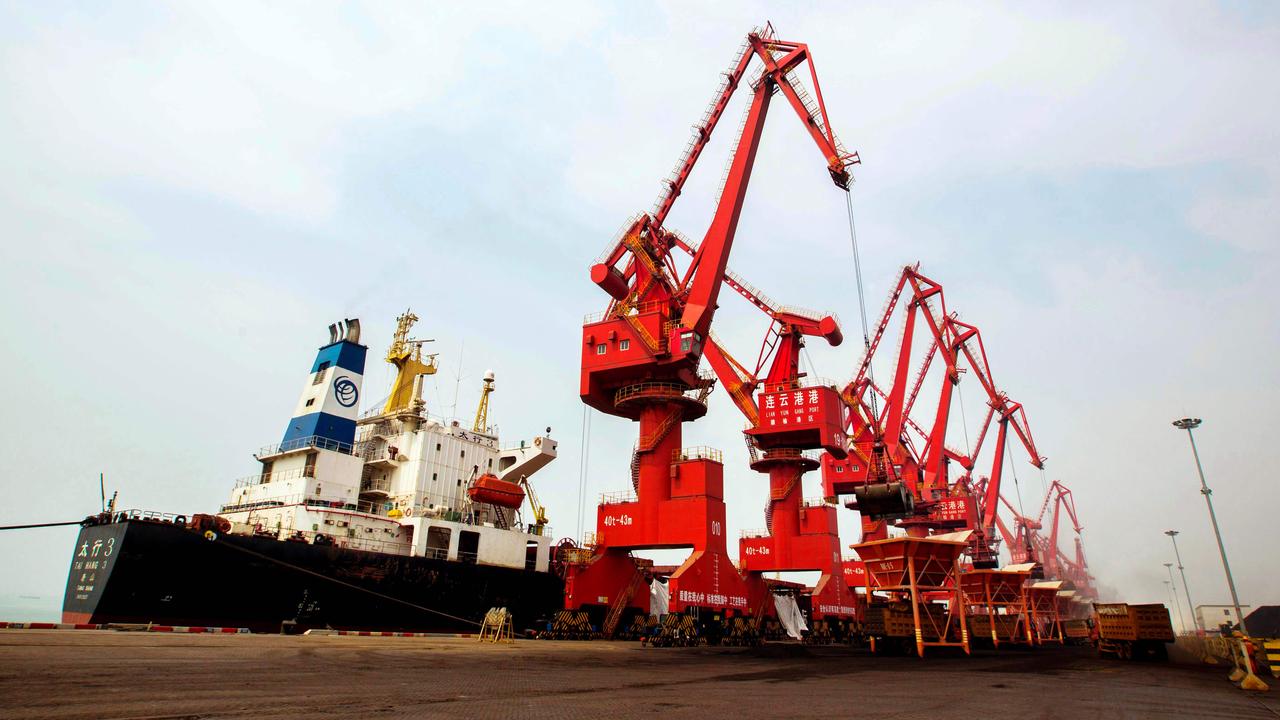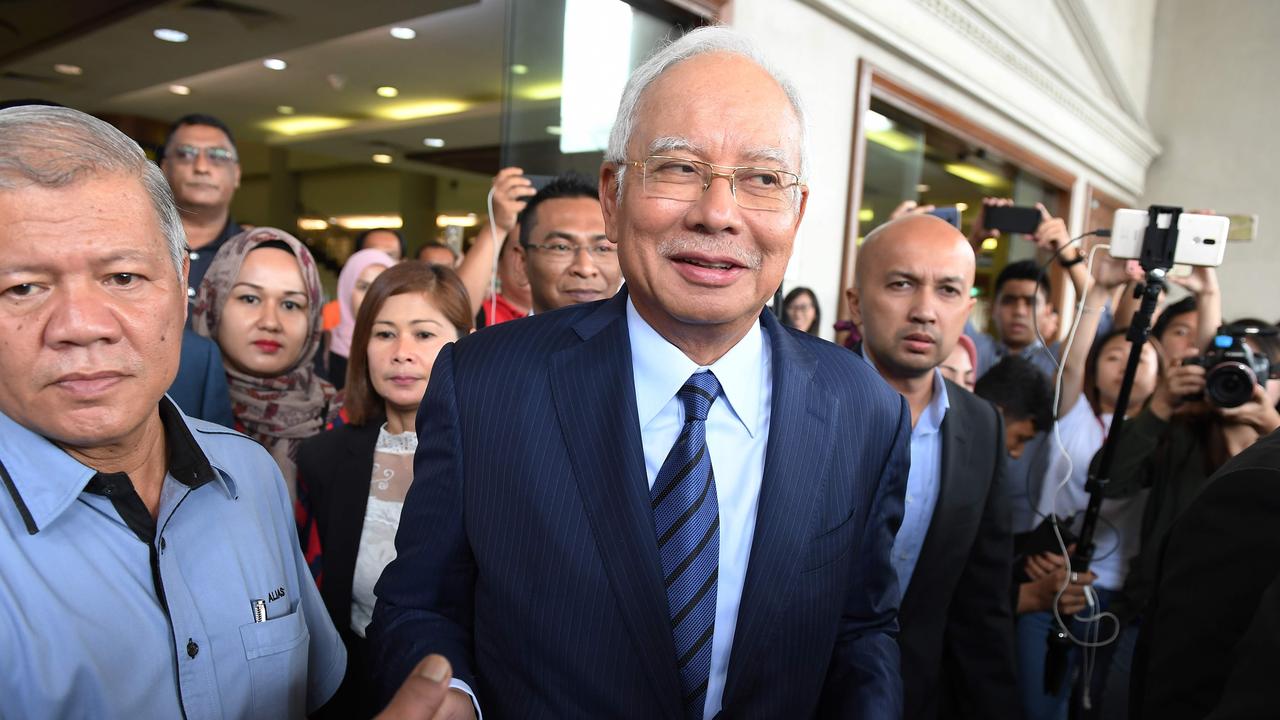Clive Palmer’s rant won’t derail FTA
THE trade talks with China are at a crucial stage.
THE response of China this week to Clive Palmer’s vituperative comments has provided key confirmation that the decade-long negotiations towards a free-trade agreement are likely at last to reach fruition.
We had seen positive signs when Beijing reacted with moderation to the warm welcome from the Abbott government for the visit of China’s present public enemy No 1, Japan’s Prime Minister Shinzo Abe.
If Beijing had wished to cast around for reasons to walk away from a trade deal with Australia, it could have seized on some political dislocation as a reason.
Instead, China’s ambassador to Australia, Ma Zhaoxu, issued a statement on Tuesday after receiving Palmer’s apology, stressing “the healthy and stable development of China-Australia relations is in the fundamental interests of the two countries and peoples, and cannot be overturned by any individual”.
Ambassador Ma noted that the Chinese government, the Chinese community in Australia, the Australian government “and people from all walks of life” had strongly condemned “Palmer’s insulting remarks on China … (which) could by no means represent the Australian government and parliament, let alone its people”.
This statement was reinforced by the highly positive approach Chinese media executives took at a forum with Australian counterparts in Sydney on Monday — addressed by Ambassador Ma and by State Council Information Minister Cai Mingzhao — compared with more prickly remarks made at the previous meeting two years ago.
These indications suggest the crucial final stage of FTA negotiations is pushing ahead positively — with a conclusion targeted in November, either for the visit of President Xi Jinping to Brisbane for the G20 summit or for that of Prime Minister Tony Abbott to Beijing for the APEC summit.
India’s recent undermining of the trade facilitation deal agreed in Bali last December, that had seemed set to place the World Trade Organisation’s Doha Round finally back on track, further underlines the crucial importance of continuing to make progress on big bilateral deals.
The South Korea agreement last December — which put Australian businesses back on par, at least, with principal competitors for the important markets there — placed pressure on Japan to conclude our Economic Partnership Agreement, which happened in April.
And it is this deal, which in some important areas will deliver our firms a lead over competitors, that is adding to China’s desire to conclude its own agreement with Australia, one of its major suppliers as well as a great target for investment.
As the details of the Japan EPA — a massive document — are examined, more elements emerge both to excite business players and to hold out the tantalising prospect they might be adopted in a China agreement as well.
Tokyo-based Vanessa Wallace, a non-executive director of Wesfarmers, rightly noted at a recent PwC forum in Melbourne about the EPA, that the resulting work “has only just begun” — with Australia providing fewer than 1 per cent of the foreign enterprises operating in Japan, compared with the US providing 28 per cent and Europe even more.
For instance, the 70,000 properties that produce beef cattle need to be informed about the opportunities presented by the tariff reductions.
She said that just as French makers and distributors had opened up a new market of wine consumers so Australians should do with beef — with the average Japanese consuming in 2012 less than 10kg, compared with 32kg by the average Australian.
Australia should benefit, she said, from Japan’s clear growth agenda for the six years leading to the Tokyo Olympic Games in 2020.
Jan Adams, deputy secretary for the Department of Foreign Affairs and Trade, responsible for the key bilateral trade deals, said the timing for concluding them was always crucial — “when you are brave enough to say yes”.
That happened with Japan, she said, because economic policies in both countries were broadly aligned, as were the political cycles, and the bilateral relationship had blossomed.
The Asian supply chain, she said, complicated rules-of-origin issues for manufactures, compared with agricultural or resources exports whose origins were more straightforward. The Trans-Pacific Partnership may provide, once concluded, a more convenient path, with products perhaps only needing to be marked Made in TPP.
She said that at the start of negotiations, Australia had sought to persuade Japan it should dismantle its entire protective agricultural system.
“But in the end it is Japan’s policy, and it will reform at the pace it chooses.
“Our strengths are their political sensitivity. That’s what complementarity means.”
Australia did not achieve everything it sought, but the sectors left out can be brought in at the review scheduled in five years, if not earlier.
These are also principles that could — or should — feature in a China FTA. The Japan deal includes full access to government procurement, mutual professional recognitions, three-year business visas, and the same level of protection for intellectual property.
If Adams and her Minister, Andrew Robb, can pull off with China a deal close to that, completing the Asia trade trifecta, they will deserve the biggest of gongs.



